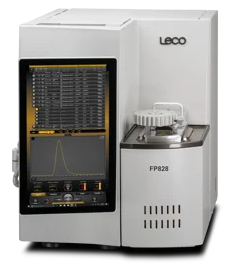Various factors contribute to a successful crop, but the significance of carbon and nitrogen cannot be overstated. The balance of carbon and nitrogen plays crucial roles in plant development and growth, from the soil to fertilizers to the plant matter itself.

Image Credit: LECO Corporation
Understanding the carbon and nitrogen levels in every aspect of the field is essential for maintaining quality control over the result.

Image Credit: LECO Corporation
A successful crop begins with good soil with ample nitrogen for plant growth in the correct ratio to the carbon content in that soil. Evaluating soil to measure these nutrient levels enables farmers to enhance the ratios beyond what is naturally present in the environment.
Nitrogen deficiencies are a common concern in arable soils, often leading to the introduction of nitrogen-rich fertilizers. Maintaining proper nitrogen levels promotes vigorous plant growth and development, leading to increased yields.
Determining the nitrogen levels in the fertilizer is the initial step toward cultivating a successful harvest.
Plants differ in their requirements for carbon and nitrogen, and even within the same plant type, there can be variations in nutritional health and nutrient uptake. Monitoring plant growth by determining carbon and nitrogen concentrations in plant tissues is a diagnostic tool to identify and address issues before they escalate.
Testing nitrogen levels across soil, fertilizers, and crops using an elemental determinator is a common practice for managing harvest health. However, the need to measure carbon in addition to nitrogen has been rapidly increasing due to regenerative agricultural practices.
Depending on the growing season, some laboratories experience a surge in demand for nitrogen testing and carbon testing. Employing an elemental determinator with both nitrogen and carbon determination capabilities can save valuable laboratory time.
The 828 series from LECO provides combined nitrogen/carbon testing capabilities in sequence, utilizing the same combustion technique and sample.
Rapid cycle times, extended reagent lifetimes and an industry-acknowledged reliability enhance sample throughput to meet or exceed the increased testing demands for soil, fertilizer, and plant samples.
The CN828 can also perform total carbon, organic carbon, and inorganic carbon applications using acid-treated samples, showcasing its versatility.
LECO application notes are a great resource for users, offering guidance on instrument configurations, optimal sample preparation, parameters, and testing procedures for various sample types using LECO equipment.
These notes help users identify the typical results they can expect from LECO instruments and detail the necessary steps taken to achieve these precise results.

This information has been sourced, reviewed and adapted from materials provided by LECO Corporation.
For more information on this source, please visit LECO Corporation.